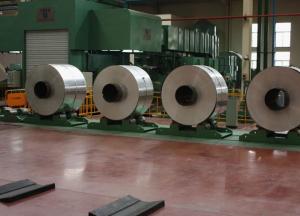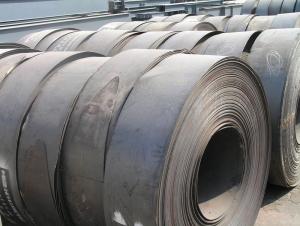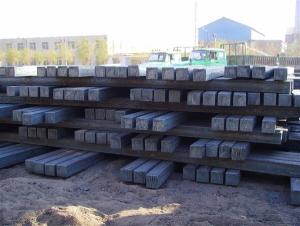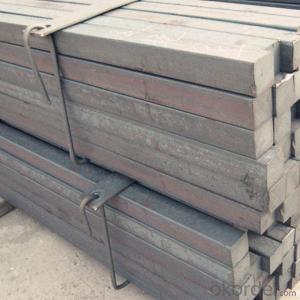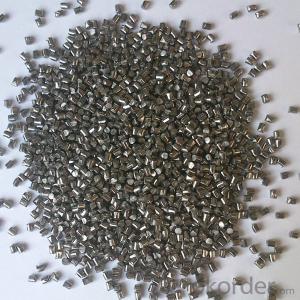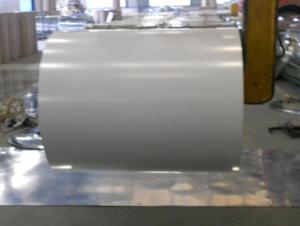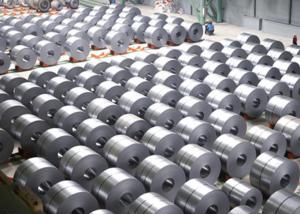STEEL WIRE ROPE FOR LIFTING
- Loading Port:
- China Main Port
- Payment Terms:
- TT OR LC
- Min Order Qty:
- -
- Supply Capability:
- -
OKorder Service Pledge
Quality Product, Order Online Tracking, Timely Delivery
OKorder Financial Service
Credit Rating, Credit Services, Credit Purchasing
You Might Also Like
- Q:What are the applications of steel in the pharmaceutical industry?
- Steel is commonly used in the pharmaceutical industry for various applications. One significant application is in the manufacturing of equipment and machinery used for processing, packaging, and storing pharmaceutical products. Steel's durability, strength, and resistance to corrosion make it suitable for constructing tanks, vessels, mixers, and pipes that are necessary for pharmaceutical manufacturing processes. Additionally, steel is utilized in the construction of cleanrooms, where drugs are formulated and sterilized, due to its ability to maintain a controlled and sterile environment.
- Q:What are the key characteristics of stainless steel?
- The key characteristics of stainless steel are its high corrosion resistance, durability, strength, and ability to maintain its appearance over time. It is also known for its low maintenance needs, heat resistance, and wide range of applications in various industries.
- Q:How is steel used in the production of construction machinery?
- Steel is commonly used in the production of construction machinery due to its high strength and durability. It is used to manufacture various components, such as frames, buckets, blades, and tracks, which require the ability to withstand heavy loads and harsh working conditions. Additionally, steel's malleability allows for easy shaping and forming of complex parts, enhancing the overall performance and reliability of construction machinery.
- Q:How are steel products used in the construction of public transportation systems?
- Steel products are used extensively in the construction of public transportation systems due to their strength, durability, and versatility. Steel is commonly utilized for the structural framework of bridges, tunnels, railway tracks, and elevated platforms, ensuring the infrastructure can withstand heavy loads and constant use. Additionally, steel is used in the manufacturing of train and subway cars, providing a safe and reliable means of transportation for the public.
- Q:What are the advantages of using steel in the manufacturing of tanks and vessels?
- There are several advantages of using steel in the manufacturing of tanks and vessels. Firstly, steel is known for its exceptional strength and durability, making it highly resistant to corrosion and damage from external factors. This ensures the longevity of tanks and vessels, reducing the need for frequent repairs or replacements. Additionally, steel's high tensile strength allows for the construction of tanks and vessels with thinner walls, maximizing storage capacity while maintaining structural integrity. Moreover, steel is a versatile material that can be easily formed into various shapes and sizes, allowing for customization and efficient use of space. Lastly, steel is a cost-effective option due to its availability, recyclability, and low maintenance requirements, making it a preferred choice for the manufacturing of tanks and vessels.
- Q:What are the main factors affecting the price of steel products?
- The main factors affecting the price of steel products include the cost of raw materials, such as iron ore and coal, as well as energy costs, transportation expenses, and labor costs. Additionally, supply and demand dynamics, global economic conditions, and government regulations also play a significant role in determining the price of steel products.
- Q:How do steel products contribute to the automotive aftermarket industry?
- Steel products contribute to the automotive aftermarket industry by providing essential components for vehicle repair and customization. From replacement parts like chassis frames and exhaust systems to accessories like grilles and bumpers, steel products are integral to maintaining and upgrading vehicles. Their strength, durability, and versatility make steel an ideal material for manufacturing aftermarket components, ensuring the safety, performance, and aesthetic appeal of vehicles.
- Q:How are steel products used in the automotive industry?
- Steel products are extensively used in the automotive industry for various applications such as vehicle bodies, frames, and components. This high-strength material provides durability, structural integrity, and crash resistance, ensuring the safety of passengers. Steel is also lightweight and cost-effective, making it an ideal choice for manufacturing car parts. Additionally, steel's malleability allows for complex shaping and forming, enabling the production of intricate automotive designs.
- Q:What are the applications of steel grating in industrial platforms?
- Steel grating has various applications in industrial platforms due to its durability, strength, and versatility. It is commonly used as flooring material in industrial platforms to provide a secure and stable surface for workers. Steel grating offers excellent load-bearing capacity, allowing it to withstand heavy equipment, machinery, and foot traffic. Additionally, it provides effective drainage and ventilation, preventing the accumulation of water, debris, and hazardous gases. Its anti-slip properties further enhance worker safety in industrial environments. Overall, steel grating is essential in creating robust and reliable platforms that optimize productivity and safety in industrial settings.
- Q:Can steel be recycled? If so, how?
- Yes, steel can be recycled. It is one of the most commonly recycled materials in the world. The recycling process involves collecting steel products, such as cans, cars, or appliances, and then shredding them into small pieces. These pieces are melted to remove impurities, and the molten steel is then shaped into new products. Recycling steel not only conserves natural resources but also reduces energy consumption and greenhouse gas emissions.
1. Manufacturer Overview |
|
|---|---|
| Location | |
| Year Established | |
| Annual Output Value | |
| Main Markets | |
| Company Certifications | |
2. Manufacturer Certificates |
|
|---|---|
| a) Certification Name | |
| Range | |
| Reference | |
| Validity Period | |
3. Manufacturer Capability |
|
|---|---|
| a)Trade Capacity | |
| Nearest Port | |
| Export Percentage | |
| No.of Employees in Trade Department | |
| Language Spoken: | |
| b)Factory Information | |
| Factory Size: | |
| No. of Production Lines | |
| Contract Manufacturing | |
| Product Price Range | |
Send your message to us
STEEL WIRE ROPE FOR LIFTING
- Loading Port:
- China Main Port
- Payment Terms:
- TT OR LC
- Min Order Qty:
- -
- Supply Capability:
- -
OKorder Service Pledge
Quality Product, Order Online Tracking, Timely Delivery
OKorder Financial Service
Credit Rating, Credit Services, Credit Purchasing
Similar products
New products
Hot products
Related keywords




